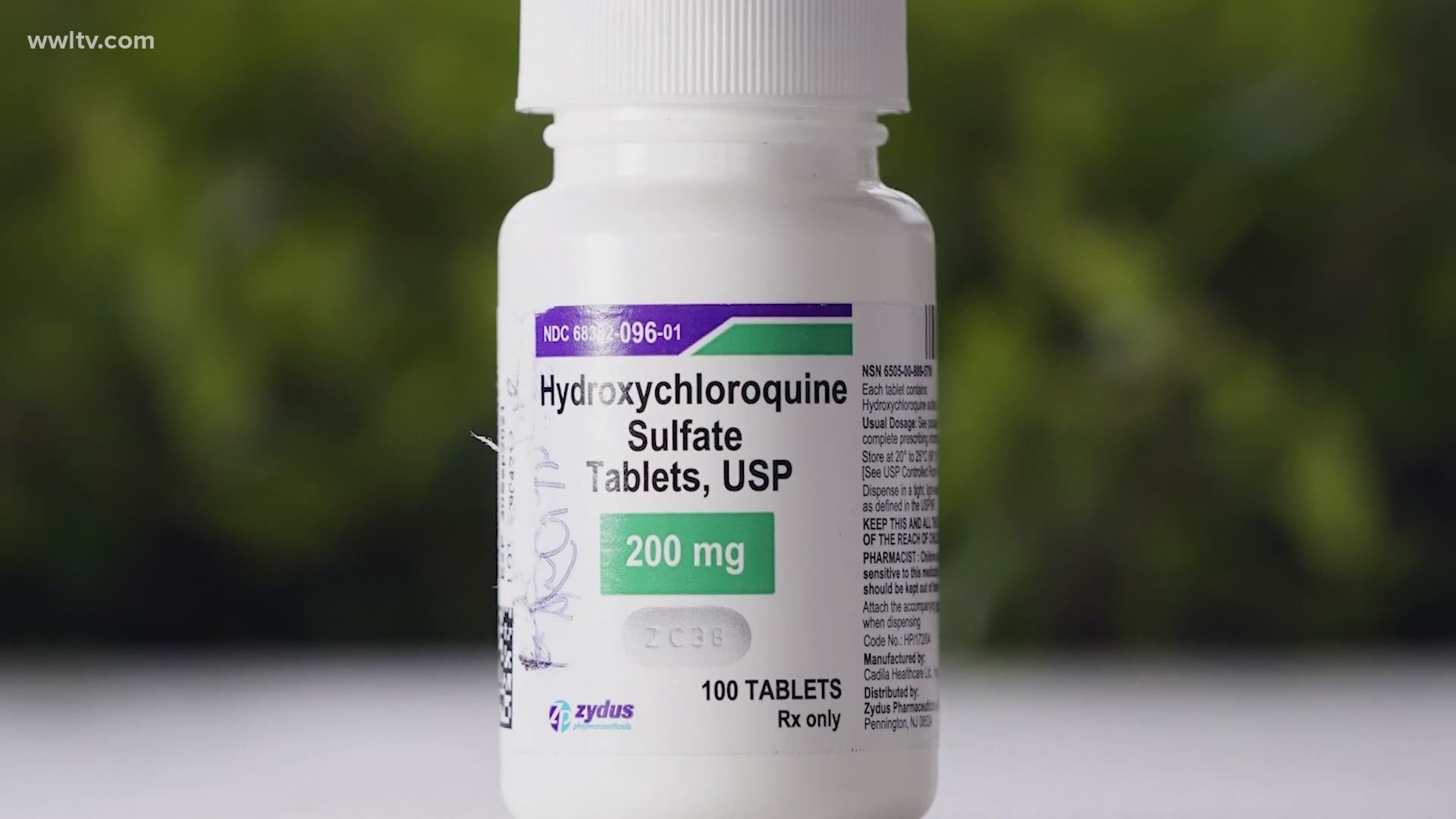NEW ORLEANS — Science articles suggesting that the drug hydroxychloroquine didn't work on hospitalized COVID-19 patients and was dangerous have been retracted.
That is the drug President Trump said he was taking to prevent getting sick from the coronavirus.
The original national headlines are affecting people signing up for local studies.
It was medical news that made headlines. Prestigious journals, The Lancet and the New England Journal of Medicine published science suggesting that the decades-old drug hydroxychloroquine, didn’t help and even had dangerous side effects on very sick people in the hospital with COVID-19.
"There was a group of about 140 scientists that called for them to render their data so that we could reanalyze the data, and they never did produce the data," explained Dr. Patty Kissinger, an Epidemiologist at the Tulane School of Public Health and Tropical Medicine.
Some of the authors asked for those articles to be retracted.
"There actually was some indication they might have falsified data because the Surgiphere (Corporation) who said that they had all these hospitals — turns out they didn’t have that number of hospitals," she said.
Tulane epidemiologist Dr. Patty Kissinger is working on studies with hydroxychloroquine and the coronavirus, and she said those headlines kept people from joining the free local studies.
"We have 60 years of safety monitoring on this medicine, so we know that it’s safe. Our recruitment plunged when this happened," Kissinger said. "It plunged. We went from like recruiting very hardily, to absolutely no recruitment for several weeks."
The Tulane studies are looking at hydroxychloroquine use in people exposed to someone with the coronavirus to see if it will prevent them from getting sick, and also people who have tested positive and have no or mild symptoms.
These are not studies for those very sick COVID-19 patients already in the hospital.
"Most scientists know now that you don’t give hydroxychloroquine to people who are very sick. They need different medications. They need anti-inflammatories," said Dr. Kissinger.
And while the science is moving fast, Dr. Kissinger said the best way through this pandemic is by taking all the necessary research steps.
Dr. Kissinger said the Tulane studies are safe, and people will be paid to join them from their own homes. They are looking for people who have tested positive or who have been exposed to someone who has the virus.
Study one:
Post-exposure prophylaxis https://depts.washington.edu/covid19pep/ Contacts of COVID-19 positive person. HCQ vs placebo.
Study two:
Outpatient treatment https://depts.washington.edu/covid19trx/ HCQ, HCQ+azithro vs. placebo. Outpatient only.
Participants are paid between $200 and $300 for completing the study. The entire study is done at home. Participants are assessed by physicians via telemedicine. The enrollment is for 28 days.
Or call (504) 289-4076 to enroll.
These are the papers that were retracted:
► Get breaking news from your neighborhood delivered directly to you by downloading the FREE WWL-TV News app now in the IOS App Store or Google Play.
More Stories:

